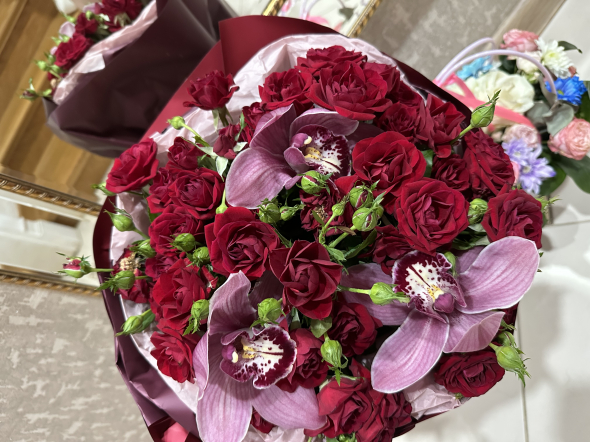Test paper
Form 7____________
Unit 1 Schools and Schooling
1. Choose little or few to complete the sentences.
1. There is (little/few) little chalk in the box.
2. There were (little/few) ____ free seats in the classroom.
3. I have (little/few) ____ to say to you.
4. We have (little/few) _____ rules to follow.
5. There is (little/few) _______ information in the letter.
6. Colin got (little/few) _____ good marks today.
7. There are (little/few) ______ pencils in the pencil case.
8. There was (little/few) ______ colour paper in the backpack yesterday.
9. At this time there is usually (little/few) _______ noise in the street.
10. Unfortunately there are very (little/few) _______ literature classes in the secondary school.
2. Choose the right words to complete the sentences.
1. (This/These) These shoes (is/are) are very old. You need a new pair.
2. (Those/That) _____ trousers (is/are) _____ too short. You can’t wear them to school.
3. (This/These) ______ pair of jeans (is/are) _______ dark blue.
4. (These/This) _______ leggings (is/are) _____ bright yellow. You should buy them.
5. That pair of mittens (is/are) _______ very warm.
6. Where (is/are) ______ my old pair of spectacles? I can’t use the new one.
7. The pair of socks (was/were) ______ behind the bed.
8. (This/These) _______ shorts (is/are) ______ not fashionable. I won’t wear them.
3. Use the appropriate(подходящий) verbs to complete the sentences.
1. For some pupils physics (is/are) is a difficult subject to understand.
2. The information we received yesterday (was/ were) _____ very important.
3. For some people statistics (is/are) _____ a boring science.
4. The money on the table (is/are) _____ mine, you can take it.
5. Linguistics (study/studies) _______ the structure of languages.
6. Education (give/gives) _______ people a lot of freedom.
7. Mathematics (is/are) _______ an exact science.
8. The scissors (is/are) ______ not very sharp.
9. There (is/are) ______ not enough glue in the bottle.
10. The spectacles (are/is) _____ on the shelf.
4. Choose the appropriate verb forms to make the sentences complete.
1. The teacher (dictates/dictated) dictated the text very slowly in our last class.
2. If you (read/will read) _______ the sentence loudly, everybody (hear/will hear) _______ you.
3. We (were writing/wrote) a test _____ when the headmistress entered the classroom.
4. Bob (is painting/paints) _____ unusual pictures but his latest is very traditional.
5. Barbara doesn’t know what mark she (gets/will get) _______ for the test.
6. Jane is sure that her parents (are/will be) ________ proud of her when she becomes a university student.
7. Pupils usually (wear/are wearing) ______ uniforms at school.
8. Yesterday Don (told/was telling) ______ us a lie and made us angry.
9. There is a sale now and the dictionary (cost/costs) _______ just 15 dollars.
10. When he bought a new computer, he (paid/was paying) ______ a lot of money for it.
5. Use a/an, the or zero article to complete the sentences.
1. There is a pencil sharpener and a pen on the desk.
2. When American students come back to ___ school after ___ vacation, they celebrate Homecoming.
3. Pupils use ___ English-Russian dictionary in ____ class.
4. I would like to buy __ exercise book and _____ pair of scissors in the
shop.
5. ___ tradition to celebrate Homecoming comes from ____ American universities.
6. ___ teacher who works in ___ primary school should be kind and nice.
7. In England pupils get _____ report card with their marks from the teachers at _____ end of ____ period.
8. There is _____ piece of cheese on ____ plate. Take it.
9. ____ pupils in England usually have five lessons five days ____ week.
10. It was ____ strict school, so Mary had to wear ___ uniform.
6. Write the where necessary.
1. “Let’s go to the cinema!” John said.
2. By law at the age of five English children must go to ___ school.
3. Little children should be in ____ bed not later than 10 p.m.
4. James is not a schoolboy anymore. He is at___ college.
5. Ann is ill. She should go and see ____ doctor.
6. Where is Nancy? — She is at ____ work, of course.
7. Yesterday I promised little Rose to go to _____ zoo with her.
8. They say Jane is seriously ill. She is in ____ hospital now.
9. How often do you go to ______ theatre?
10. It’s 11 p.m., it’s time to go to ______ bed.
11. On her way to work Molly decided to go to _______ post office.
12. After school I’m going to _____ university.
13. I’m a little bit nervous. They say I need an operation and should go to _____ hospital.
14. After breakfast we are going to _____ shops, there is no food at home.
15. There is no any of my favourite cheese here. Let’s go to ______ supermarket.
16. Where are the children? — I think they are in _____ picture gallery.
17. My granny always goes to ___ church on Sundays.
18. Next Tuesday we are going to ______ museum.
19. English children are usually at _______ school till four o’clock in the afternoon.
20. Today we can go to _____ circus if you want.

















